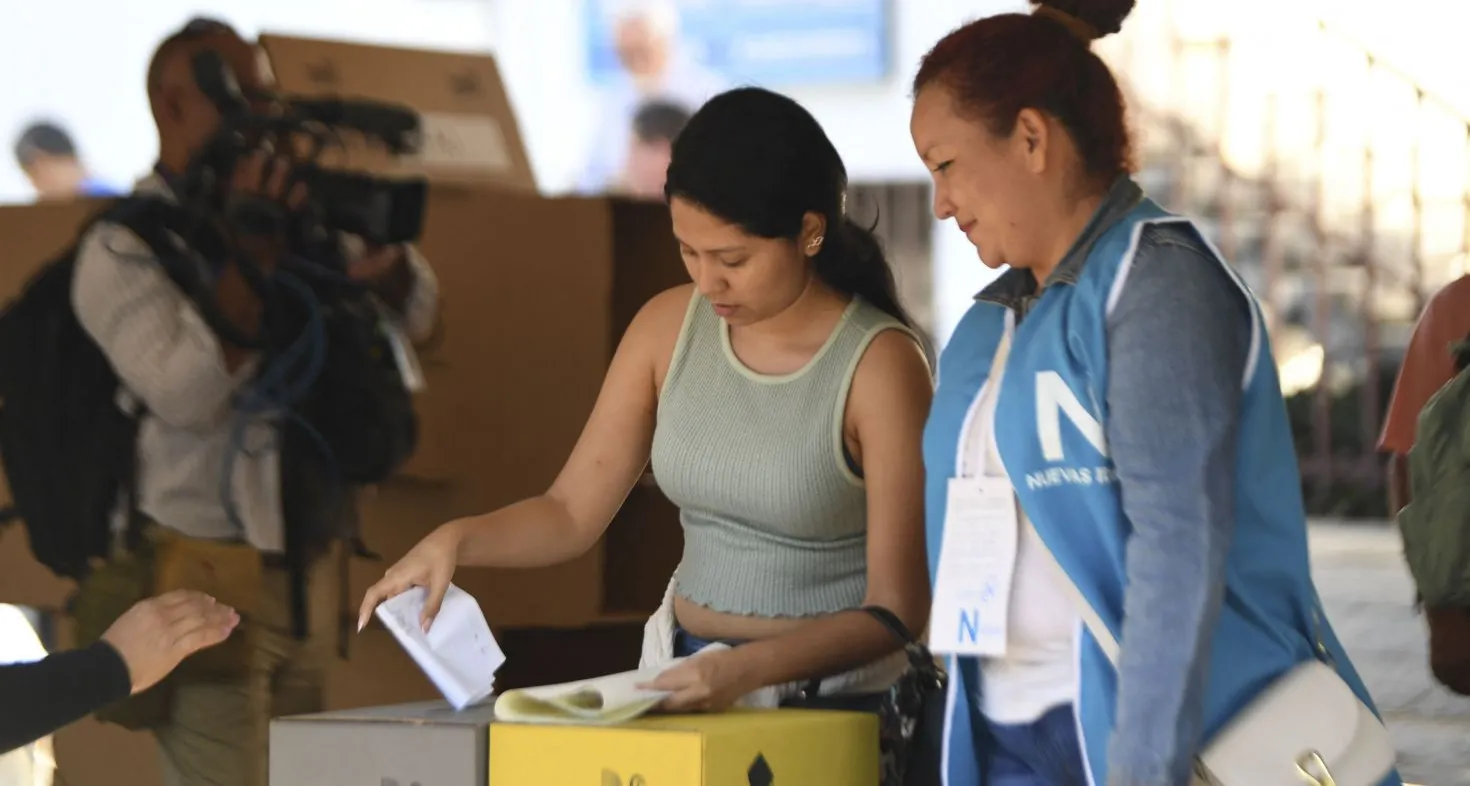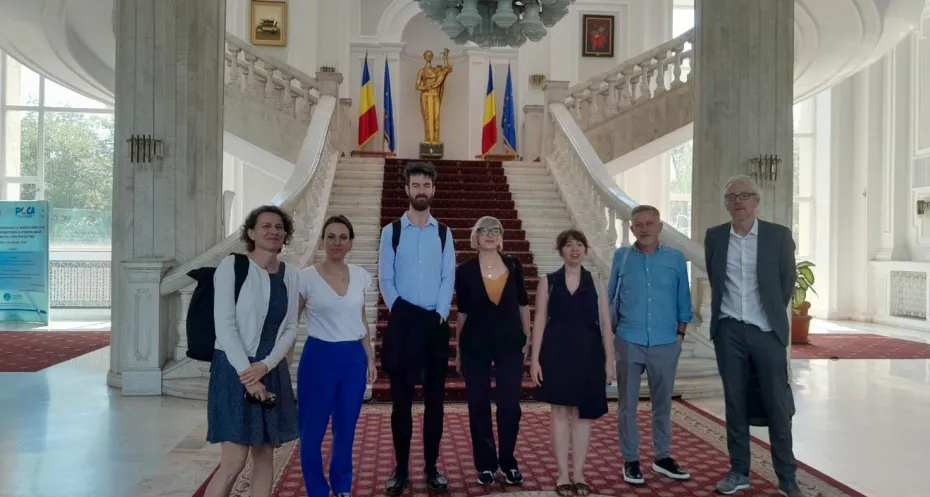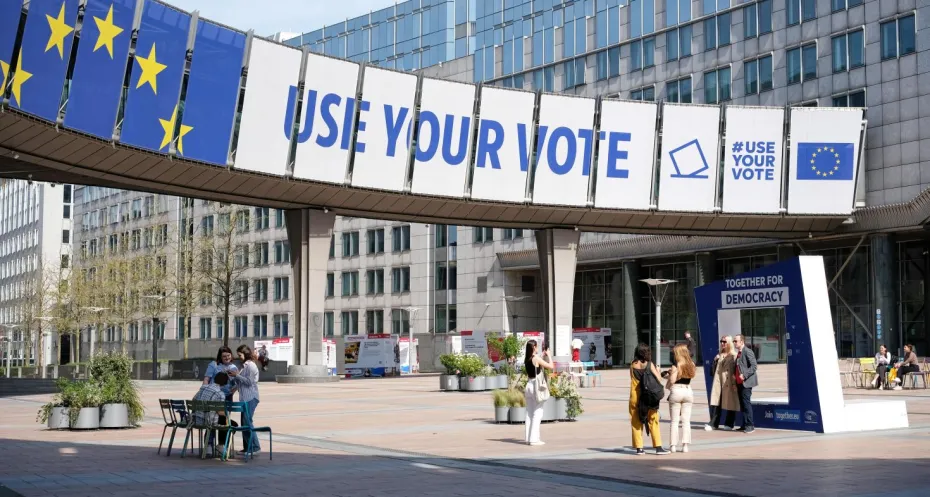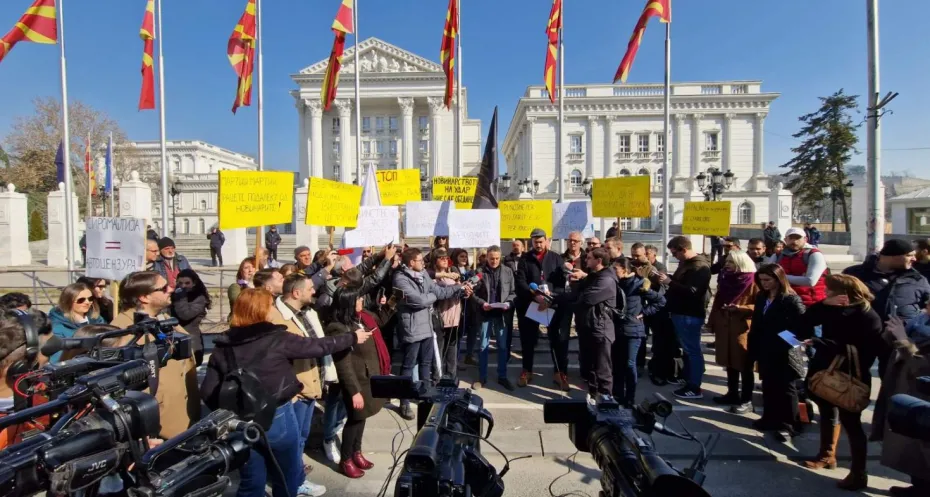
Impact of the El Salvador 2024 elections on independent journalism
On February 4, President Nayib Bukele and his political party Nuevas Ideas won the presidency of the Republic and the Legislative Assembly of El Salvador, respectively, in a landslide. Throughout the day the press was denied access in the voting centers, and also at the closing time of the polls. We had a conversation with Gabriel Labrador, Freedom of Expression Rapporteur of the Association of Journalists of El Salvador (APES) and journalist of the digital media outlet, El Faro, on how press freedom was curbed during the electoral process, and what the challenges are now.
Ever since 2011, Labrador has been a journalist at El Faro; the first native digital newspaper founded in 1998 in San Salvador and Latin America. The platform has become a regional benchmark for independent, transparent and reliable journalism that covers topics like corruption, organised crime, inequality, impunity and Human Rights, and in that regard also deals with a lot of pressure coming from power holders.
According to Labrador, journalists in the country did everything they could to report thoroughly before, during and after election day, but they, and many other journalists, encountered obstacles and threats. In this article you can read their update on the events that occurred and on the challenges lying ahead.
Lead-up to the elections
By law, every campaign for the presidential election lasts four months (from October until three days before the election), two months for deputies and one month for local governments. However, for the first time, since the Government had a democratic election in 1984, there was no campaigning "in the streets" as it used to happen, due to, among other things, a lack of governmental payment to political parties to campaign, and the many verbal and written attacks from the current regime towards opposition candidates or leaders.
"The aggressions received by the Salvadoran press are not isolated events or coincidence, but part of a strategy to consolidate a political leadership without dissidents and opponents."
This kind of electoral silence in daily life moved the field of action to the social networks and the digital space. Here, journalists noticed the highest number of attacks and threats, although there are also reports of aggressions in the physical space.
Labrador notes that the aggressions received by the Salvadoran press are not isolated events or coincidence, but part of a strategy to consolidate a political leadership without dissidents and opponents. In the run-up to the elections, that is, during the period for the parties to campaign, El Faro monitored 65 attacks against journalists.
Election day
On election day, the Association of Journalists of El Salvador (APES, by its Spanish acronym) and its Aggressions Monitoring Center, documented 224 aggressions against journalists. The most recurrent form of aggression were physical attacks preventing journalists from doing their work, representing 39.7% of the cases. In the digital space, most aggressions occurred on the social network X, formerly Twitter, where there were 71 aggressions towards journalists.
Labrador highlights two events on election day that deserve special attention because they illustrate the context of hostilities against the press, and show that it is likely that the climate of aggressions will remain the same and even worsen under the new Bukele administration.
One of those moments was a press conference given by President Bukele in the middle of election day, a few minutes before the closing of the polls, in contravention of the electoral law which stipulates that no candidate should make a statement to call for a vote for a party. At that conference, local media were not included on the list of journalists allowed to ask questions. In contrast, international media had ample opportunity to ask questions. President Bukele took several of those questions and included in his answers many attacks against journalism in general, and against specific media outlets in particular. In summary, his line of attack consisted of questioning the independence of all journalists and making sure they all knew they should obey the directives of the government when it comes to reporting and publishing materials.
The second event happened in the evening. To announce his victory without official data confirmed by the Supreme Electoral Tribunal (TSE), Bukele gave a speech in a city square and again vocalised his criticism against journalists and media, whom he accused of promoting an anti-nationalist agenda that criticises the exception regime.
Challenges in reporting on the tally process
The most worrisome aspect of the electoral coverage occurred on the night of February 4, when the preliminary results transmission system failed. The final tallying process was not very transparent and journalists needed to be very close to the polling stations to document the situation and confirm or discard whether or not there were anomalies. However, this was impossible due to the restrictions imposed by the TSE and enforced, on the ground, by the delegates and members of the official Nueavas Ideas party.
"There were cases where journalists were forced to erase videos taken in the facilities where the polling stations were located and there were repeated cases of journalists being removed (...)."
Instead of allowing the press to help guarantee the integrity of the electoral process, the TSE chose to impede their work, contradicting its own electoral regulations. These state that the media and the press should have access to the electoral process "before, during and after" it. There were cases where journalists were forced to erase videos taken in the facilities where the polling stations were located and there were repeated cases of journalists being removed when they tried to approach the polling stations.
Some media and journalists were able to expose many of the flaws in the final tally process thanks to informants and document leaks, something that again irritated the TSE authorities. In a television interview, TSE's president, Dora Martínez de Barahona, accused the media of "attacking democracy", of lying and distorting reality. She did not clarify the different situations exposed by the media and, instead, accused the media of "misinforming", of "having political ideology", and of making "biassed" publications.
Upcoming challenges for independent media
Labrador unfortunately sees many challenges ahead. Independent media are first of all challenged to survive financially. The foreign agents law, which would imply a 40% tax rate on all income coming from abroad, would make any financial operation unviable. The law has already been partially approved and a final approval in the plenary of the Legislative Assembly is pending. This will impact many of the still operating independent media.
It is also expected that the Salvadoran independent media will continue to face a constant, systematic and powerful smear and stigmatisation campaign promoted by the Salvadoran State through multiple spokespersons, institutions and officials. Another risk that Labrador signals is that the government will implement measures to certify who can call themselves journalists and who cannot. In short, the government could take advantage of the fact that the Salvadoran journalist association does not have legal attributes to certify journalists and occupy that space, with which they would lose much influence and relevance.
It will also be increasingly difficult for media to hold power holders accountable. The government has established a media lockout that prevents the independent press from adequately covering the political power. No interviews are granted, no press conferences are called, no statements are made, no comments are given when asked. Lastly, the use of spyware and military technology for surveillance is a large threat. In January 2022, El Faro revealed that around thirty journalists and activists were tapped with Pegasus software.
Needed support
Labrador states that support is needed in the form of emergency funds for relocation and shelter for journalists who are under attack. Between 2022 and 2023, about 20 journalists have had to leave the country due to threats. Of these, at least five are cases of journalists who decided to go into permanent exile. In the coming months, it will be highly important to design a strategy to strengthen the different types of media and journalism that exist in the rural areas of the country.



